High Spirits in Seattle


 Good news at Main Street Books, St. Charles, Mo., which announced in December that it was going to close if owners Vicki and Jim Erwin couldn't find a buyer for the store. Last month, the Erwins did find buyers: Andy, Ellen and Emily Hall, who will take possession of Main Street Books on February 15.
Good news at Main Street Books, St. Charles, Mo., which announced in December that it was going to close if owners Vicki and Jim Erwin couldn't find a buyer for the store. Last month, the Erwins did find buyers: Andy, Ellen and Emily Hall, who will take possession of Main Street Books on February 15.
Vicki Erwin had said that she and her husband wanted to spend more time with their children and grandchildren and to travel. Last week, she told the St. Louis Post-Dispatch that the Halls are "customers of the store" and "very 'booky.' The transition into retirement will be much easier for me knowing that the store will continue in good hands."
Emily Hall is a recent graduate of Truman State University in Kirksville, Mo., who majored in English and will oversee the day-to-day operations of the store. Ellen and Andrew Hall are her parents.
Emily Hall said in an e-mail to the paper that there were no immediate plans to change anything about the store. "Currently, our plan is to learn everything we can from Vicki, as she has graciously agreed to help us through the transitional period. We're very thankful for this---Vicki is a wonderful person and her knowledge of the industry is vast. Once we're confident in our ability to manage the store effectively, we will think about the future."
Private equity and investment firm Wasserstein & Co. has acquired the assets of Recorded Books from Haights Cross Communications, a K-12 educational and library publisher. Northwestern Mutual and Lexington Partners are co-investing in the transaction with Wasserstein.
Recorded Books offers more than 13,500 exclusive unabridged audiobooks to library, school and retail markets in the U.S., U.K. and Australia. In addition, the company offers libraries more than 100,000 e-books through its OneClick Digital platform and 12 electronic resources including Zinio, a multi-platform distribution service for digital magazines; and IndieFlix, a streaming movie service.
Recorded Books president and CEO Rich Freese said the "partnership provides us with the resources to further broaden our content offerings and services for customers, and accelerate our growth into additional global markets."
Richard Grossman, who as a new publisher in the 1960s "looking for a big book" signed a contract that gave a young lawyer named Ralph Nader a $3,000 advance for Unsafe at Any Speed: The Designed-in Dangers of the American Automobile, died last week, the New York Times reported. He was 92. Grossman sold his publishing business to Viking in 1968 and "went on to become a psychotherapist, with offices in Manhattan and Salisbury, Conn.; an authority on alternative medicine; and a published expert on Ralph Waldo Emerson," the Times noted.
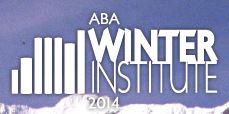
The discussion focused on the challenges of selling dark and sad young adult fiction to teens and their parents. The terms sad and dark, the panelists explained, could pertain to books that dealt with suicide, depression, heartbreak or death, as well as violent and scary horror novels. Hermans was joined on the panel by Cathy Berner of Blue Willow Bookshop in Houston, Tex., and Lish McBride, author of the Necromancer YA series and bookseller at Third Place Books in Lake Forest Park, Wash. Diane Capriola, owner of Little Shop of Stories in Decatur, Ga., moderated the panel.
"It's more about the journey," offered Capriola, when raising the rhetorical point of what sad and dark YA is worth. "These books are teaching kids that it's not always going to be easy, but you'll be okay."
Even if a teen is not going through a serious issue, that teen probably has friends who are, said McBride. "Horror and dark fantasies make it easier for kids to look at these issues outside of themselves," she added.
Both Berner and McBride agreed with Hermans that teens often recognize when a book is too much for them to handle. McBride recounted that her young son, after reading about the grisly death of a beloved character in the third Hunger Games book, put the book down for a few days and returned to it only when he was ready.
McBride asserted that parents often turn a blind eye toward what their children are learning and reading about in school while hyper-scrutinizing their entertainment choices. "Kids who are reading Night might not be allowed to read the Hunger Games," she said.
"We have to trust our kids to know what's best for them," implored Berner.
Capriola proposed that handselling a dark or sad book to a teen often amounts to overcoming the trust issues of that teen's parents, and asked how booksellers can best break through that barrier.
Berner suggested that booksellers should emphasize the greater hope, or "ray of light," below all the darkness. The point of these YA titles, she said, is ultimately not to wallow in misery but to reveal hope. "Convey that to your customers," she said. "And tell them that if it's not for you, return it. Our goal is to put beautifully crafted stories in people's hands."
Berner also advised booksellers to share their knowledge of YA books with each other as frequently as possible, to avoid inadvertently handselling a title that might deal with serious issues.
"Hopefully, the first time you give them a book that works," answered Herman. "Once you've got that going, you've got a lifetime of commitment." --Alex Mutter

When it comes to customers who want to explore self-publishing, Hanson said the most important thing a bookseller can do is help authors articulate and manage their expectations. Most self-published authors don't realize that they often need to start the process at least three months before they expect to publish. Once Village Books knows what an aspiring self-publisher wants from a project, the staff can help the customer explore options, either through Village Books or other (not mutually exclusive) options like Kirkus Reviews, Ingram Spark and Kobo's Writing Life.
Kirkus Reviews allows authors to buy a review from its qualified reviewers and/or access to professional editors who can help them get their project in shape before self-publishing. Karen Schechner, senior indie editor at Kirkus Reviews (and a former senior editor at the ABA), explained that booksellers can direct interested self-publishers to Kirkus for reviews (the store earns a $25 commission) or editorial referral (no commission). For every 10 reviews purchased from Kirkus, the store gets $75.
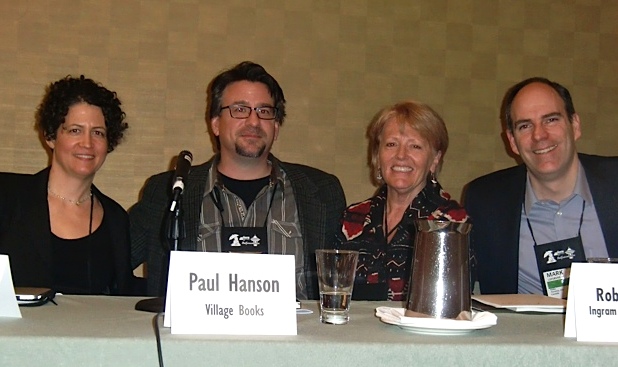 |
|
|
Karen Schechner, Paul Hanson, Robin Cutler, Mark Lefebvre |
|
"Kirkus handles it all," Schechner said. The reviews cost $425-$575, and are not guaranteed to be positive. An author can opt to post the review on Kirkus's website, or not publish it and use it as feedback. "A positive review can launch a career," said Schechner, citing Darcie Chan's novel The Mill River Recluse--a self-published title that went on to sell 750,000 copies and was featured in the Wall Street Journal.
Robin Cutler from the Ingram Book Company said Ingram Spark--the self-publishing program the company launched at BEA last year--came out of Ingram's desire to make it easier for self-published authors to work with the company to make their books available as print-on-demand to 38,000 retailers and/or as an e-book.
Cutler said that since July 1, Ingram Spark has had more than 100,000 visitors to the site and signed up 2,500 accounts. "It grows exponentially month to month," said Cutler, who added that Ingram is adding more services and tweaks to Spark.
Mark Lefebvre, Kobo's director of self-publishing and author relations, said he published his own first book with Lightning Source. He described Kobo Writing Life as a publishing portal "born out of the desire to remove barriers for writers and small presses" to publishing e-books.
Kobo, said Lefebvre, is also working with indie booksellers to schedule in-store Writing Life workshops for authors who want to self-publish. Kobo has done workshops at WORD in Brooklyn, N.Y., and at Housing Works in New York City, and had a workshop scheduled for Village Books the weekend after WI9.
"One of the key messages" in the Kobo workshops and sessions like the panel at WI9, said Lefebvre, is that "now there is a choice" when it comes to self-publishing. At the very least, after the session, booksellers said it gave them a few places to start directing their self-publishing-inclined customers. --Bridget Kinsella
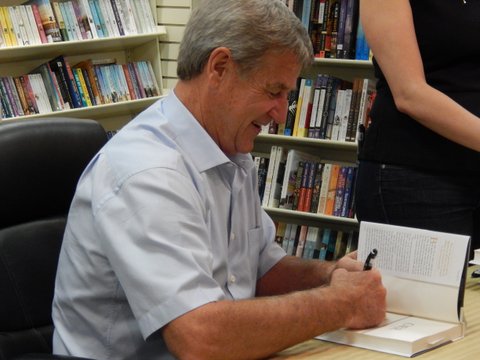
Last week, 800 fans packed the Vero Beach Book Center, Vero Beach, Fla., where former National Hockey League great Bobby Orr spent three hours signing copies of his memoir, Orr: My Story (Putnam).
Jen Reynolds has been promoted to director of field sales at Houghton Mifflin Harcourt. She was previously national account manager and will maintain sales responsibility for Ingram as well as supervising field sales territories (both house reps and commission groups).
Reynolds began her career as a bookseller with Joseph-Beth Booksellers, where she was promoted to buyer and then director of publisher relations and events. Before joining Houghton Mifflin Harcourt last year, she handled Midwest field sales for PGW/Perseus/Perseus Distribution.
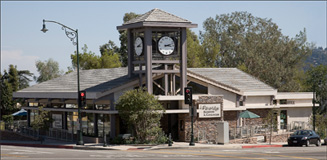 Flintridge Bookstore & Coffeehouse, La Canada, Calif., recently hosted its fifth annual Mother-Daughter Book Party, "an opportunity for moms and daughters to discover new authors, find good reads and inspire the writers within," the Valley Sun reported, noting that authors at seven stations discussed their latest works, answered questions about writing and publishing and talked about story ideas, hobbies, pets and more.
Flintridge Bookstore & Coffeehouse, La Canada, Calif., recently hosted its fifth annual Mother-Daughter Book Party, "an opportunity for moms and daughters to discover new authors, find good reads and inspire the writers within," the Valley Sun reported, noting that authors at seven stations discussed their latest works, answered questions about writing and publishing and talked about story ideas, hobbies, pets and more.
"A lot of times, parents and children don't know what to read. By having several authors at once we can expose readers to genres they might not have read on their own," said children's and young adult book buyer Catherine Linka, who "circulated among the stations, scattered throughout the store and coffee shop, with a buzzer in hand," the Valley Sun wrote. "Allowing several minutes for discussion, she rang the buzzer for people to switch stations. The round-robin format ensured girls and moms could meet and talk to every author."
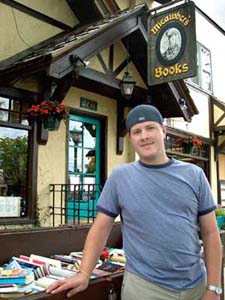 Hans Weyandt is stepping away from his bookseller role at Micawber's Books, St. Paul, Minn., to spend more time with his family. Tom Bielenberg, who has co-owned the bookstore with Weyandt since 2003, told the Twin Cities Daily Planet: "I will miss him terribly and I am sorry to see him go. It's been a great run."
Hans Weyandt is stepping away from his bookseller role at Micawber's Books, St. Paul, Minn., to spend more time with his family. Tom Bielenberg, who has co-owned the bookstore with Weyandt since 2003, told the Twin Cities Daily Planet: "I will miss him terribly and I am sorry to see him go. It's been a great run."
Asked if he might return to the book trade eventually, Weyandt said, "I don't know what is going to happen going forward. I'm not going to say yes or no." He did concede, however, "he might get roped into the occasional book event around town," the Daily Planet wrote.
Coffee House Press, which published Weyandt's book Read This!: Handpicked Favorites from America's Indie Bookstores, featured "A Mash Note to Our Friend Hans" on its blog, noting that "we wanted to share something personal too, because Hans is more than an author--he's also a friend. We're going to miss his ever-changing displays, his ability to match just the right book to just the right person, and the certainty that we can find him behind the counter on Carter Avenue, but we know he won't be far."
Chris Fischbach, Coffee House publisher, said, "For over fifteen years, Hans has been my favorite bookseller. From his early days at Hungry Mind through his curatorship of Micawbers, I have always trusted him, looked to him to stretch the boundaries of my reading comfort zone. He represents the best of this business of books: he's trustworthy, hardworking, community-minded, curious, and committed. I'm happy and proud to call him my friend."
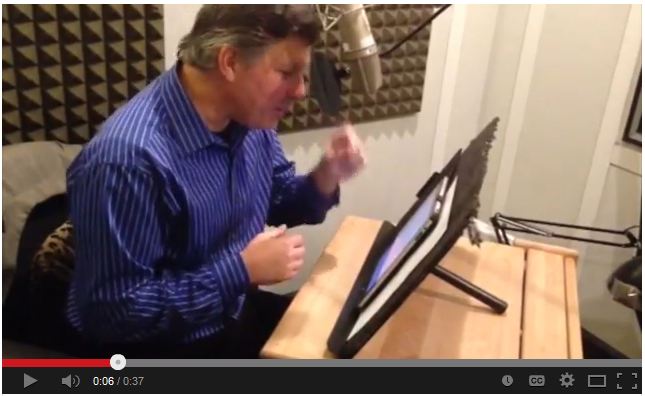
 Eleanor Catton, author of The Luminaries, has signed a contract for an adaptation of her Man Booker Prize-winning novel into a television miniseries, NZCity reported, noting that Catton "says she wants to keep the filming in New Zealand, in particular in the novel's setting of Hokitika, on the South Island's West Coast."
Eleanor Catton, author of The Luminaries, has signed a contract for an adaptation of her Man Booker Prize-winning novel into a television miniseries, NZCity reported, noting that Catton "says she wants to keep the filming in New Zealand, in particular in the novel's setting of Hokitika, on the South Island's West Coast."
"Some things I wouldn't compromise on: it wouldn't make sense to be filmed anywhere else," she said. "I don't even know if I could put my foot down about that, but if I could, I will."
Warner Bros has released a new trailer for Winter's Tale, the film adaptation of Mark Helprin's novel directed by Akiva Goldsman and starring Jessica Brown Findlay (Downton Abbey), Colin Farrell, Jennifer Connelly, William Hurt, Eva Marie Saint and Russell Crowe. The movie opens February 14.
---
A new red band teaser trailer has been released for Jonathan Glazer's Under the Skin, based on the novel by Michel Faber. Indiewire noted that "this spring, a film is arriving that is intellectually satisfying, completely riveting and an undeniably unique piece of work." Under the Skin, which stars Scarlett Johansson, opens in New York and Los Angeles on April 4 before a wider release April 11.
This morning on CBS This Morning: Ken Jennings, author of Ken Jennings' Junior Genius Guides: Maps and Geography (Little Simon, $7.99, 9781442473287) and Greek Mythology (Little Simon, $7.99, 9781442473300).
---
This morning on the Today Show: Amy Chua, co-author of The Triple Package: How Three Unlikely Traits Explain the Rise and Fall of Cultural Groups in America (Penguin Press, $27.95, 9781594205460). She will also appear today on Dateline and CNN's Anderson Cooper 360 tomorrow on Morning Joe and NPR's On Point..
---
Today on Morning Joe, Fresh Air and the Colbert Report: Jennifer Senior, author of All Joy and No Fun: The Paradox of Modern Parenthood (Ecco, $26.99, 9780062072221).
Also on Morning Joe: McKenzie Funk, author of Windfall: The Booming Business of Global Warming (Penguin Press, $27.95, 9781594204012).
---
Today on NPR's Diane Rehm Show: Roddy Doyle, author of The Guts (Viking, $27.95, 9780670016433).
---
Today on Dr. Oz: Majid Fotuhi, co-author of Boost Your Brain: The New Art and Science Behind Enhanced Brain Performance (HarperOne, $25.99, 9780062199270).
---
Today on Arsenio Hall: La La Anthony, co-author of The Love Playbook: Rules for Love, Sex, and Happiness (Celebra, $24.95, 9780451466440).
---
Tomorrow morning on CBS This Morning: Robin Cook, author of Cell (Putnam, $26.95, 9780399166303).
Also on CBS This Morning: Su Meck, co-author of I Forgot to Remember: A Memoir of Amnesia (Simon & Schuster, $25, 9781451685817).
---
Tomorrow morning on the Today Show: Hoda Kotb, author of Ten Years Later: Six People Who Faced Adversity and Transformed Their Lives (Simon & Schuster, $15.99, 9781451656046).
---
Tomorrow morning on Morning Joe: Charlie Crist, co-author of The Party's Over: How the Extreme Right Hijacked the GOP and I Became a Democrat (Dutton, $26.95, 9780525954415). He will also appear on the O'Reilly Factor and Fox Radio's Alan Colmes Show.
---
Tomorrow night on the Late Late show with Craig Ferguson: J. Maarten Troost, author of Headhunters on My Doorstep: A True Treasure Island Ghost Story (Gotham, $26, 9781592407897).
Triple Package: How Three Unlikely Traits Explain the Rise and Fall of Cultural Groups in America by Jed Rubenfeld, Amy Chua (Penguin Press, $27.95 hardcover, 9781594205460, February 4, 2014)
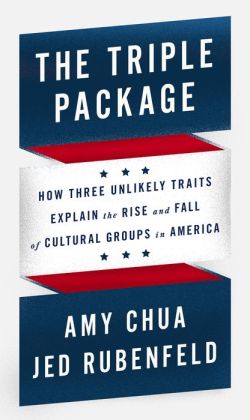
Three characteristics--a superiority complex, insecurity and impulse control--comprise what Chua and Rubenfeld call, somewhat inartfully, the "Triple Package." When these "distinct forces come together in a group's culture," the pair assert, "they propel that group to disproportionate success." Drawing deeply on what they call a "well-substantiated and relatively uncontroversial body of empirical evidence," reflected in extensive endnotes, they explain in clear and persuasive terms how these at times paradoxical traits have contributed to the undeniably outsized accomplishments of minority groups as disparate as Mormons, Jews and Nigerian immigrants to the U.S.
As impressive a spur to achievement as it may be, Chua and Rubenfeld candidly acknowledge the Triple Package is anything but an unalloyed good. With their relentless focus on "material, conventional, prestige-oriented success," the cultures that value the three traits risk fostering a countervailing set of pathologies, from intolerance to deep neurosis. The authors also take pains to disassociate themselves from those who advance arguments for the inherent superiority or inferiority of any religious, cultural or ethnic group. In fact, contrasting the economic plight of African Americans with African and other black immigrants who suffer racial prejudice, Chua and Rubenfeld are quick to point out that "the United States did everything it could for centuries to grind the Triple Package out of African American culture--and is still doing so today."
The final chapter, the one that may well be its most controversial, endeavors to make the case that the U.S., once the quintessential Triple Package culture, has, by embracing the twin values of universal self-esteem and instant gratification, sawed off two legs of this three-legged construct. Chua and Rubenfeld fail to offer any easy solution to this predicament, however, except to suggest an idealized future where "there are no longer any successful groups in the U.S.--only successful individuals." If they succeed in touching off a spirited debate about the best path to that goal, the pair will have accomplished something of real value. --Harvey Freedenberg
Shelf Talker: Husband-and-wife law professors at Yale offer an intriguing explanation for the disproportionate success of certain groups in American society.